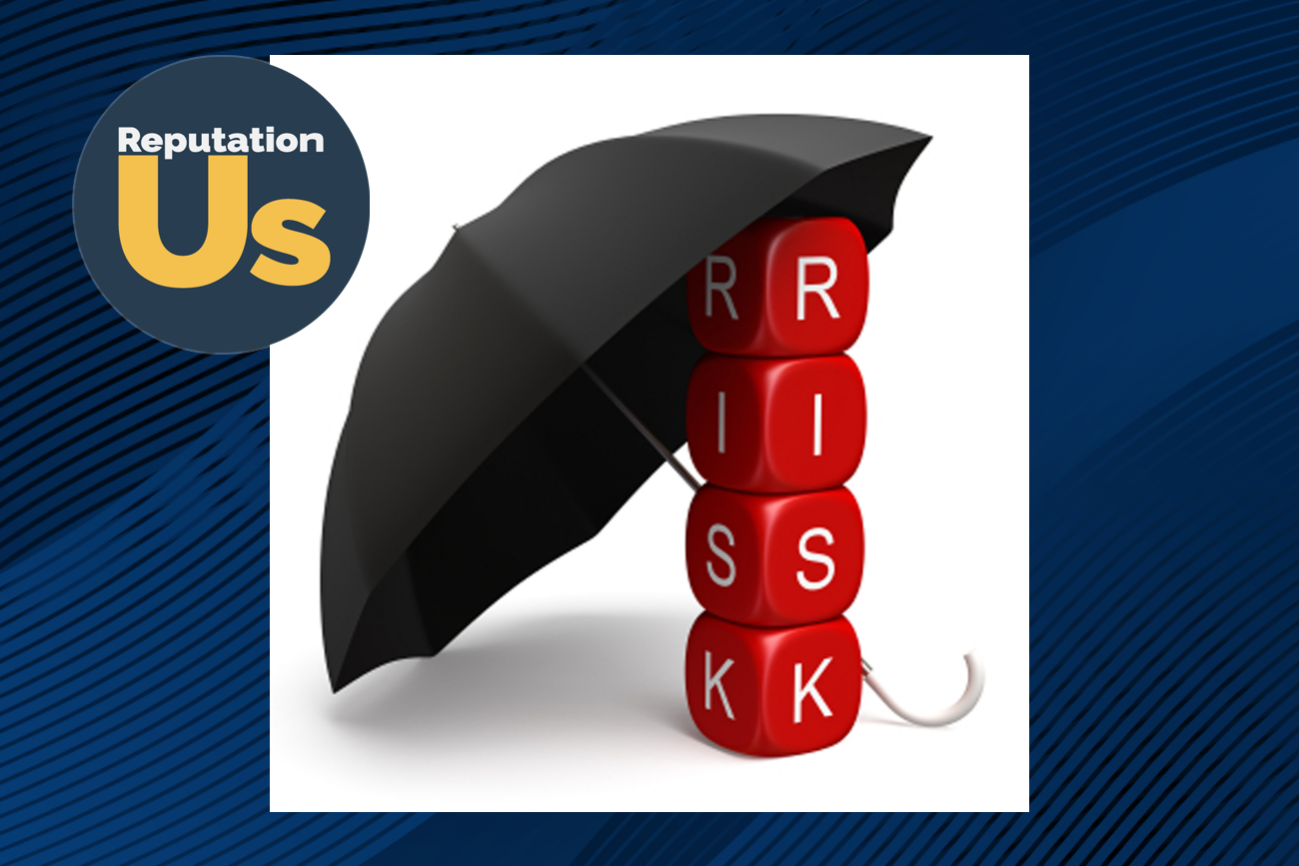It only takes one crisis to permanently harm your company’s image. What’s more, given that social media may post a damaging story instantly, your business may find itself scrambling to perform damage control. This can have major repercussions to your customers’ confidence, staff morale, recruiting efforts and future sales.
Risk and insurance professionals are putting increasingly less emphasis on physical assets, and more focus on intangible risks such as cyber threats, business interruption and reputational risks. Global insurance brokerage company Willis Towers Watson reports, “Among FTSE-350 companies, 85 percent of their corporate value is intangibles, a large proportion of which is reputation.”
The global top-fifty companies have nearly $11 trillion of intangible assets, according to the Howden “Insuring the Invisible,” report published by the insurance broker in April 2021. “The proliferation of data, technology and automation has transformed the composition of companies’ assets. Today, most corporations value brand and reputation ahead of property, plants and equipment.”
Recognizing The Big Risk
Loss of reputation is a big risk for any brand. Insurers now recognize that risk and underwrite it like any other threat. It may even feel quick and easy.
Airmic, a London association for those responsible for their organization’s risk management and insurance, hosted a webinar focused on reputational risk in March 2021. Willis Towers Watson participated along with its partners, including lead insurer Liberty Specialty Markets, and PoleCat, a data and analytics provider. The three companies have teamed-up to provide reputational risk insurance solutions, with Tokio Marine Kiln, another insurer with reputational risks products, supporting the project.
Their product breaks down reputational risk into nine insured perils:
- Sale of harmful products
- Disease outbreak (excluding Covid)
- Bodily injury
- Animal abuse
- Customer abuse
- Employee abuse
- Abduction or abuse
- Active assailant
- Disgrace of a celebrity endorser
A reputational crisis can happen to any business of any size. Global exposure to cybersecurity breaches; terrorism; political risk; travel risk; kidnap and ransom; product contamination; supply chain and product distribution disruption; and adverse media coverage has amplified previous reputational threats to an unprecedented scale.
It’s happened enough that the insurance industry now offers Reputation Risk Insurance to protect companies against financial loss. But how can something as abstract as reputation be quantified and rolled into an insurance policy?
Does Reputation Risk Insurance Protect You…Really?
An insurance policy covering reputational damage generally covers a company’s loss of profits and offers financial support for crisis management and efforts to restore its image—after the fact.
Such policies are not without a high price. Since stand-alone reputation insurance is often cost-prohibitive, most businesses rely on the reputational risk coverage found in more comprehensive policies. While every carrier is different, reputational risk protections can be found in a variety of policies. The most common include:
- Liability insurance: Most business liability insurance policies include coverage for libel or slander lawsuits and advertising injury, which could occur from false or offensive information in marketing materials. These are often related to the personal and advertising injury coverage portion of a policy.
- Cyber-threat insurance: Cyber-threat insurance is the most common policy required by small businesses. A wide range of threats may be covered, ranging from data breaches; denial-of-service attacks; and ransom attacks. Social-media activity may fall under this coverage as well. Keep in mind that the scope of this insurance may be deliberately narrow in order to lessen underwriter risk.
- Crisis management insurance: After a controversial event or loss of income, it may be necessary to hire a public relations firm to proactively address issues and mitigate future damage. Coverage is often made as part of technology errors and omissions(E&O) policies.
Keep in mind, just as it is easier to stay fit than to get fit, if you rely on reputation risk insurances as your only safeguard, you will be playing catch-up should an incident occur. It is advisable to manage your reputation daily—a good habit to regularly exercise.
Exercise Your Reputation
“If you experience a reputation incident, insurance might pay out, but better yet, why not insure yourself beforehand with preventative measures?” says Casey Boggs, president and Chief Reputation Officer at ReputationUs, “Advanced planning, response preparation and simulation training for a reputation crisis is NOT something you can buy from an insurance company.”
Boggs cautions companies that, “relying on an insurance policy can be a false investment in your reputation. A good investment comes from identifying vulnerabilities and crisis issues ahead of time, then planning and training for them to mitigate risk and be prepared. Insurance will not protect you from harmful damage; it is not a substitute for creating a solid crisis communication plan.”
Regular Training = Best Results
Engaging in active reputation enhancement and crisis mitigation by being truly prepared to respond accordingly are the best ways to reduce the impact of a negative situation. Choose your core crisis team; create a formal crisis management plan with specific instructions; train your staff; and put crisis-related policies in place in your day-to-day operations.
A thorough crisis management plan should include a risk assessment, and plans for business continuity and emergency management. Then train your crisis team on roles, responsibilities and how to use the plan. Lack of training can harm what otherwise would be a solid crisis response.
There’s no such thing as complete protection from risks, but many strategies can limit your exposure and help you respond to a potential crisis. Advanced planning may be one of the smartest insurance policies you can put in place to protect your business. It takes some upfront work—but it makes you stronger at your center than any quick fix that promises to pick up the pieces.
Reputation protection is now available @ Contact@ReputationUs.com








